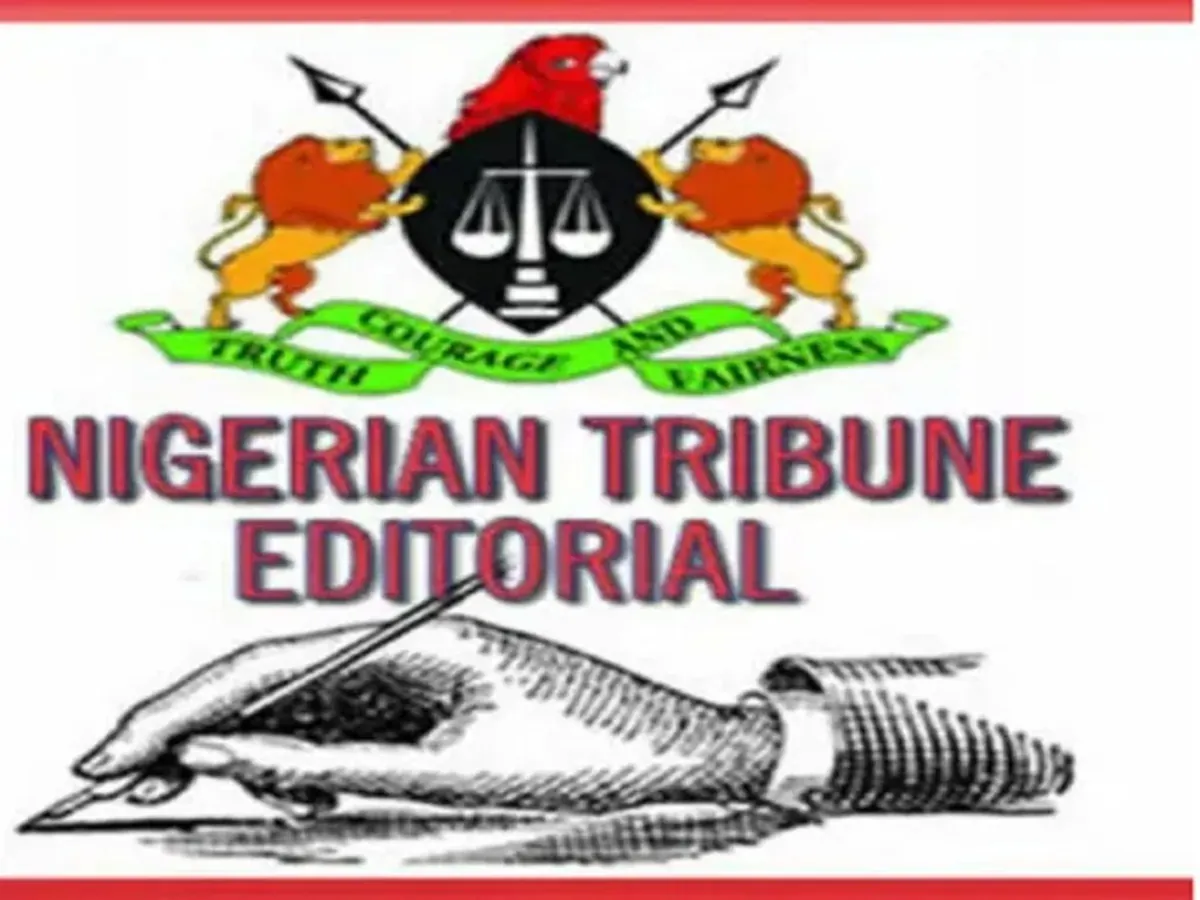Copyright tribuneonlineng

THE recent security alert from the Department of State Services (DSS), warning of potential attacks by the Islamic State of West Africa Province (ISWAP) in Kogi and Ondo states, should send a cold shiver down the spine of every Nigerian. This is not another routine advisory to be skimmed and forgotten. It is a grave warning that exposes two stark realities: the expanding reach of a ruthless terrorist organisation and the persistent fragility of Nigeria’s security architecture. On the surface, official reactions from both states have been by the book. The Kogi State government praised the DSS for its “proactive” intelligence work, while Ondo officials sought to downplay the memo as part of “regular intelligence-sharing.” These statements were predictable, crafted to reassure the public and contain panic. Yet, they ring hollow against the grim backdrop of what the intelligence actually implies: that ISWAP is not merely planning an attack, but steadily advancing a broader territorial project. A recent investigation by The New Humanitarian paints an alarming picture of the scale of that project. ISWAP, once dismissed as a splinter of Boko Haram, has evolved into something more dangerous, a proto state with administrative systems, tax structures, and a war economy that dwarfs those of several Nigerian states. With an estimated annual revenue of $191 million, ISWAP now commands resources ten times greater than the official tax income of Borno State. The group operates a bureaucratic taxation regime, collecting Zakat, Haraji, and Darayib through receipts and inspectors, financing its fighters, purchasing weapons, and even providing rudimentary public services. It is jihadist governance, alive and thriving on Nigerian soil. Against such financial muscle and organisational discipline, Nigeria’s conventional security response looks painfully thin. That is why the DSS alert cannot be treated as just another report. It is a strategic distress signal. When a terror group with state-level resources targets new territories, it signals a deliberate expansion, not random violence. The mention of specific communities in Ondo, Eriti Akoko, Oyin Akoko, and Owo, and the entire state of Kogi, is no accident. Kogi sits at Nigeria’s geographical crossroads, linking the North to the South and the East to the West. A successful attack there would not only inflict casualties; it would symbolically and physically sever the country’s arteries. It would demonstrate that no part of Nigeria is beyond ISWAP’s reach. The Ondo government’s attempt to normalise the intelligence as “routine” is dangerously complacent. The DSS memo clearly states that terrorists have “commenced surveillance on soft targets.” This is not bureaucratic jargon. It is the language of imminent action. We have seen this sequence before: warnings ignored, attacks executed, condolences offered, and the cycle repeated. The recent violence in parts of Kwara State, just north of Kogi, already bears the hallmark of ISWAP’s creeping southern advance. The pattern is obvious; what is missing is a decisive response. This brings us to the central question: beyond the rhetoric of vigilance, what exactly are the governments of Kogi and Ondo doing to protect their citizens? The recurring appeal for citizens to “remain vigilant” is a hollow substitute for security. Farmers in Owo and traders in Lokoja cannot defend themselves against trained militants armed with rocket-propelled grenades. Vigilance is not a strategy. It is an act of desperation in the absence of credible protection. Nigeria’s persistent vulnerability underscores a deeper structural failure: its centralised, outdated policing model. The Nigeria Police Force, overstretched and under-resourced, is ill-equipped to handle the fluid and localised nature of modern terrorism. A threat targeting specific communities in Akoko cannot be effectively countered by a command structure controlled from Abuja. What is needed is a policing system that is locally rooted, responsive, and accountable to the people it serves. The case for decentralised police has never been more urgent. Critics warn that governors might abuse such forces for political gain. That concern is valid, but it pales beside the daily abuse of life and security that terrorists already inflict. A well-structured, constitutionally safeguarded state police system, integrated with local intelligence and community cooperation, is not a political luxury. It is a national necessity. The DSS has done its part by raising the alarm. The onus now lies on the federal and state governments to transform that intelligence into action. This means visible, overwhelming, and coordinated security operations across Kogi, Ondo, and their border regions. It means pre-emptive strikes on identified cells, not reactive condolences after attacks. It also means confronting the economic dimension of insurgency, cutting off the funding streams that sustain ISWAP’s war machine. With a $191 million treasury, ISWAP is waging an asymmetric warfare that Nigeria cannot win with business-as-usual tactics. The DSS alert should therefore be seen not as an isolated warning, but as a defining moment in Nigeria’s counterterrorism trajectory. The alternative, continued complacency, is unthinkable. If Kogi falls, the South becomes vulnerable. If Ondo is infiltrated, the myth of regional safety will collapse. The terrorists understand the symbolism of geography; so must we. The defence of Nigeria’s heartland cannot be left to calm statements and empty assurances. It requires urgency, coordination, and reform.



